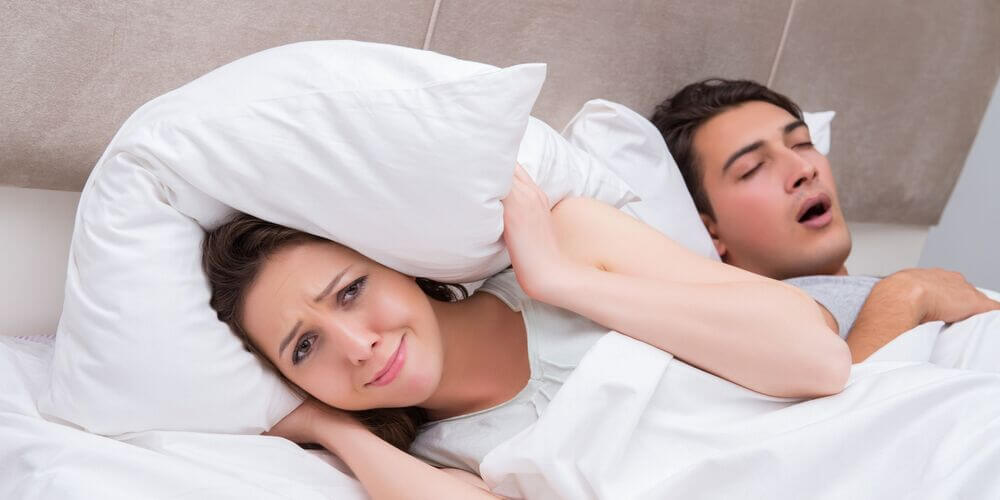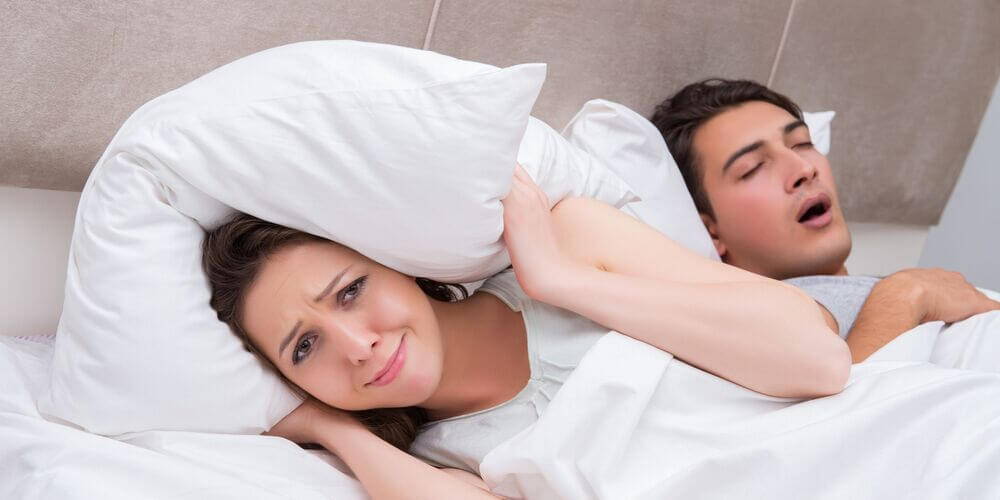
Sleep Apnea vs. Snoring - Know The Differences
0 commentaires
Sleep Apnea vs. Snoring: Find Out the Difference
Sept 26, 2023. By Shilpa Unnikrishnan

Is snoring frequently waking you up from sleep?
Perhaps it’s also waking your partner up. Do you wonder if you have a debilitating sleep disorder known as sleep apnea because of your snoring habit?
Far too often, sleep apnea and snoring are muddled up or considered interchangeable. Well, let’s debunk this myth first — not every person who snores has sleep apnea, and not everyone with sleep apnea snores.
Do you feel tired and unrefreshed after a full-night’s rest? You may have a condition called Obstructive Sleep Apnea or OSA. OSA, which is the most common type, exists as recurrent breathing lapses due to physical blockages (either complete or partial) of the upper airway. In due course of an apneic phase, the diaphragm and chest muscles strive as the pressure intensifies to open the restricted airway. Generally, breathing is restarted with a noisy gasp and physical twitch. If untreated, such episodes can impede restful sleep, reduce blood-oxygen circulation to key organs, and lead to arrhythmia (irregular heartbeat).
Did you know that nearly half of the adult population snores and one-fourth of them are habitual snorers?
So, what is snoring?
Snoring occurs due to the obstruction of airflow as you inhale and exhale during sleep. When the airways are narrowed or partly blocked, breathing results in the vibration of the tissues in the upper airways, which subsequently creates the snoring sound.
Yes, snoring is a typical symptom of OSA.
However, just because you snore doesn’t imply you have OSA, and just because you have OSA doesn’t necessarily mean you will snore. Both snoring and sleep apnea are the conditions connected to the flow of air in the upper airway.
So, what’s the difference between sleep apnea and snoring? Let’s find out!
OSA is characterized by brief pauses in breathing while sleeping. This results in momentary or partial arousal, sleep disruption, and excessive daytime sleepiness. On the contrary, snoring doesn’t involve pauses in breathing.
Another difference lies in the way you feel both after waking up and for the entire day.
Snoring may not wake you up all night–even though your bed partner may have sleep disruptions. But OSA can affect your sleep quality and causes excessive sleepiness and fatigue during the day. This can lead to mood swings, depression, and lowered productivity. When you have OSA, you snore more frequently and more loudly and wake up gasping for air.
So, now you know that not all snorers have OSA. Occasional snoring generally doesn’t have long-term effects. If snoring is not associated with sleep apnea, it doesn’t negatively affect your life that much. But if you experience any symptoms such as loud snoring, pauses in breathing, gasping for breath, waking up tired after a restful sleep, morning headaches, or lack of focus, talk with your healthcare provider, as untreated sleep apnea may affect your quality of life.
Can Diaphragmatic Breathing Help Sleep Apnea Symptoms?
Increasing Diaphragmatic Muscle Strength:
Regular practice of diaphragmatic breathing can help strengthen the diaphragm muscle, leading to improved respiratory muscle strength and function. A stronger diaphragm is more effective at maintaining proper airflow during sleep, which can help reduce the occurrence of sleep apnea events.
Improving Muscle Coordination:
Diaphragmatic breathing involves coordinated movement of the diaphragm with other muscles involved in breathing. This coordinated movement can help improve the overall efficiency of breathing, reducing the workload of breathing and potentially reducing the development of sleep apnea episodes.
Reducing Stress and Improving Relaxation:
Diaphragmatic breathing activates the body's relaxation response and reduces stress. Stress and tension can contribute to sleep apnea by increasing muscle tension and promoting shallow breathing. By practicing optimal diaphragmatic breathing, which promotes relaxation by activating the vagus nerve, individuals with sleep apnea may experience reduced muscle tension and more efficient breathing during sleep.
Improving Lung Capacity:
Diaphragmatic breathing involves taking deep breaths that fully expand the lungs, which can help increase breathing volume and lung capacity. With increased lung capacity, individuals will be able to take in more air with each breath, reducing the work of breathing during sleep and potentially alleviating sleep apnea.
Learn to Breathe Better with The Optimal Breathing Mastery Kit.

Meet Mike White
Meet Michael Grant White, the Optimal Breathing Coach and get actionable insights on your breathing development, health and longevity



